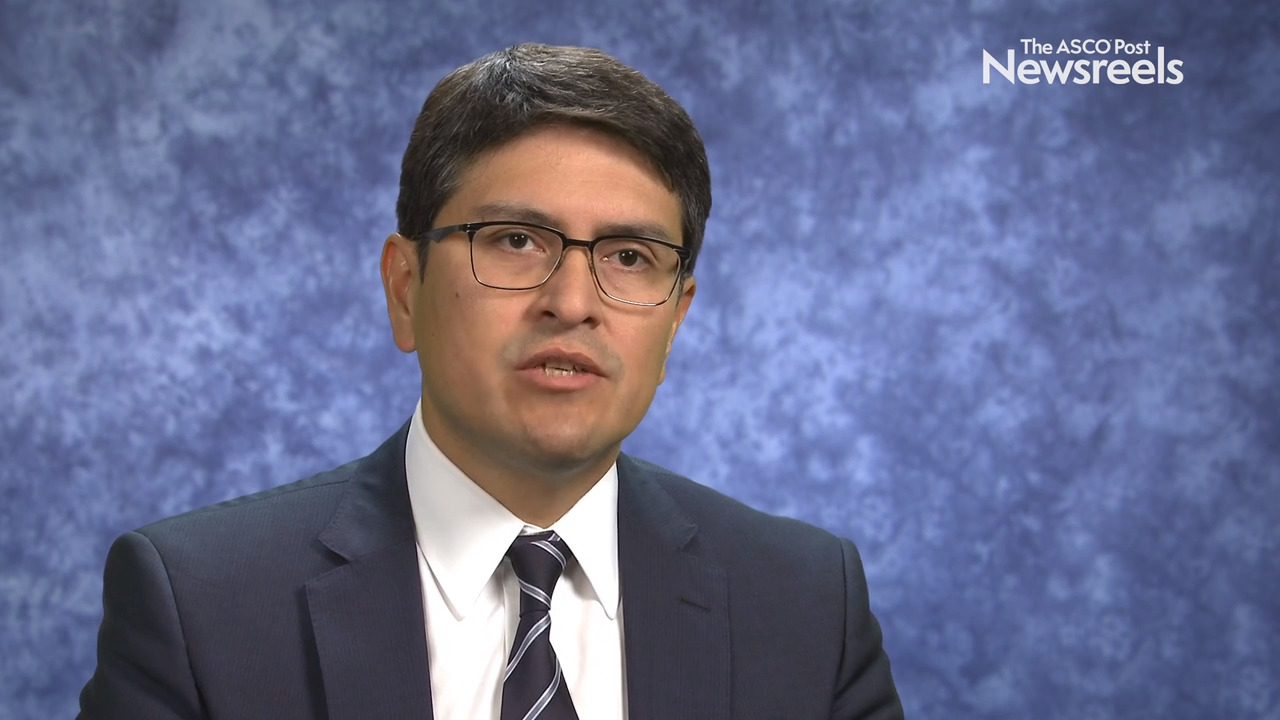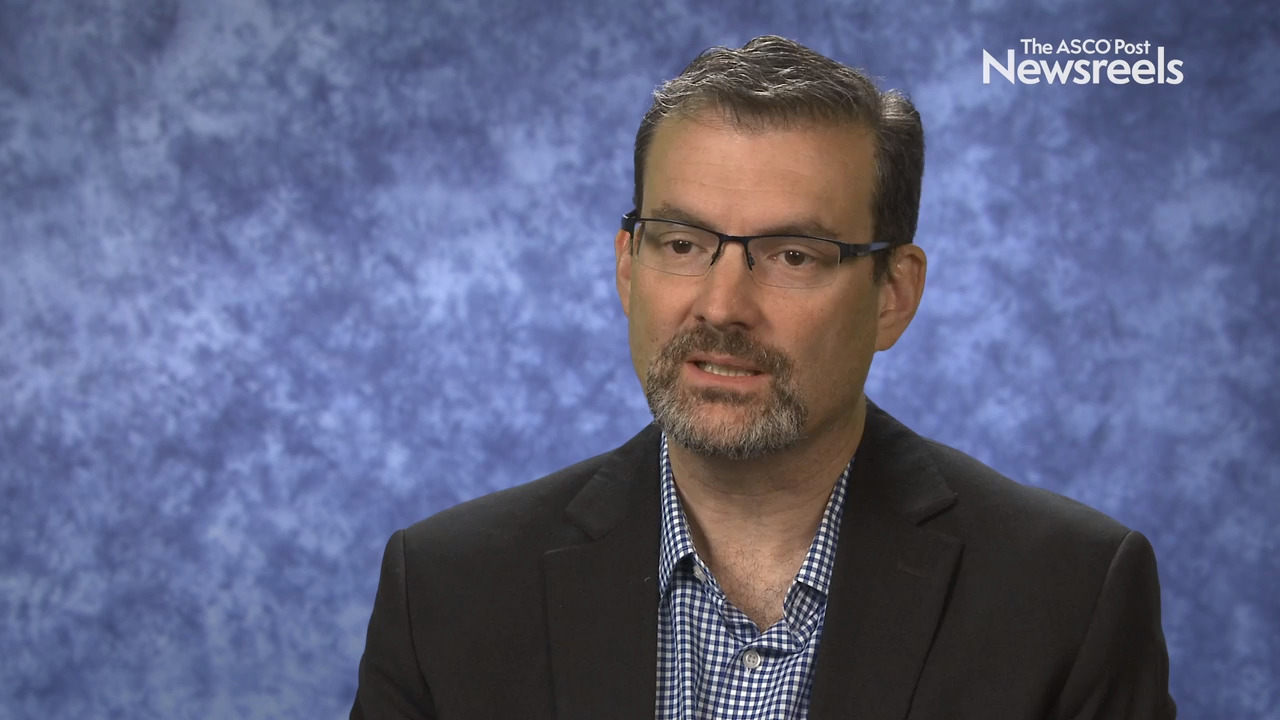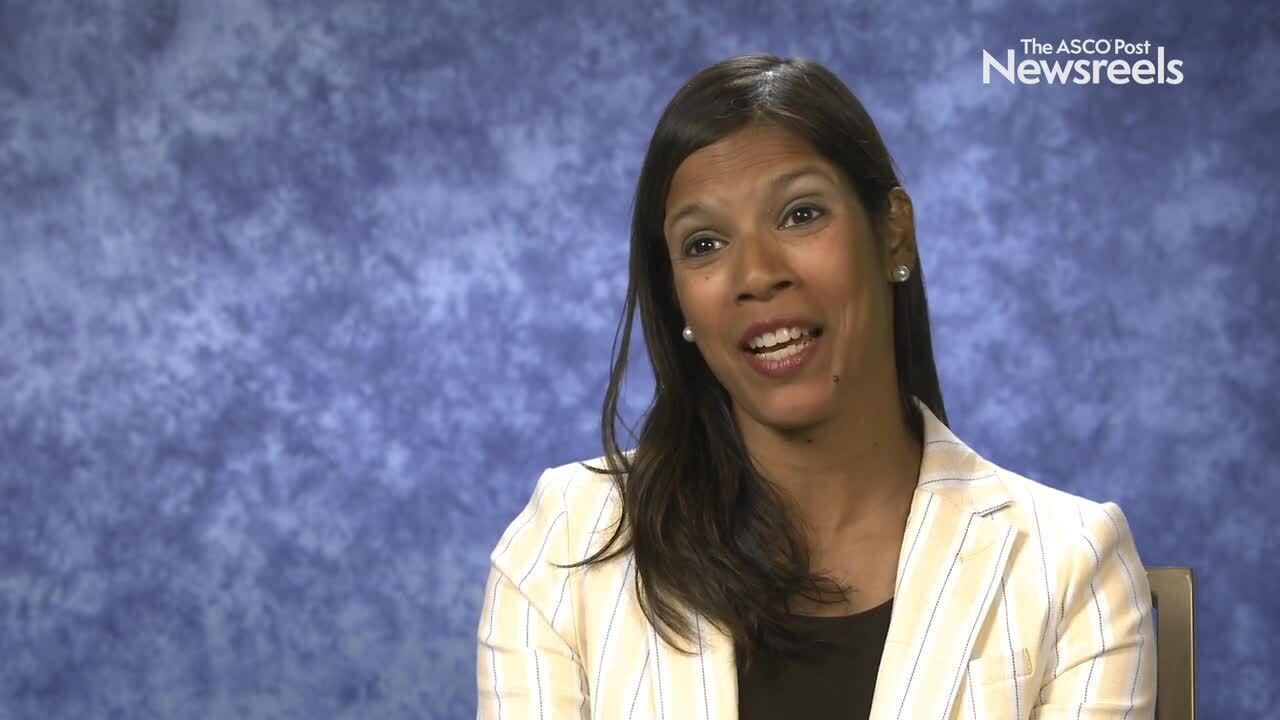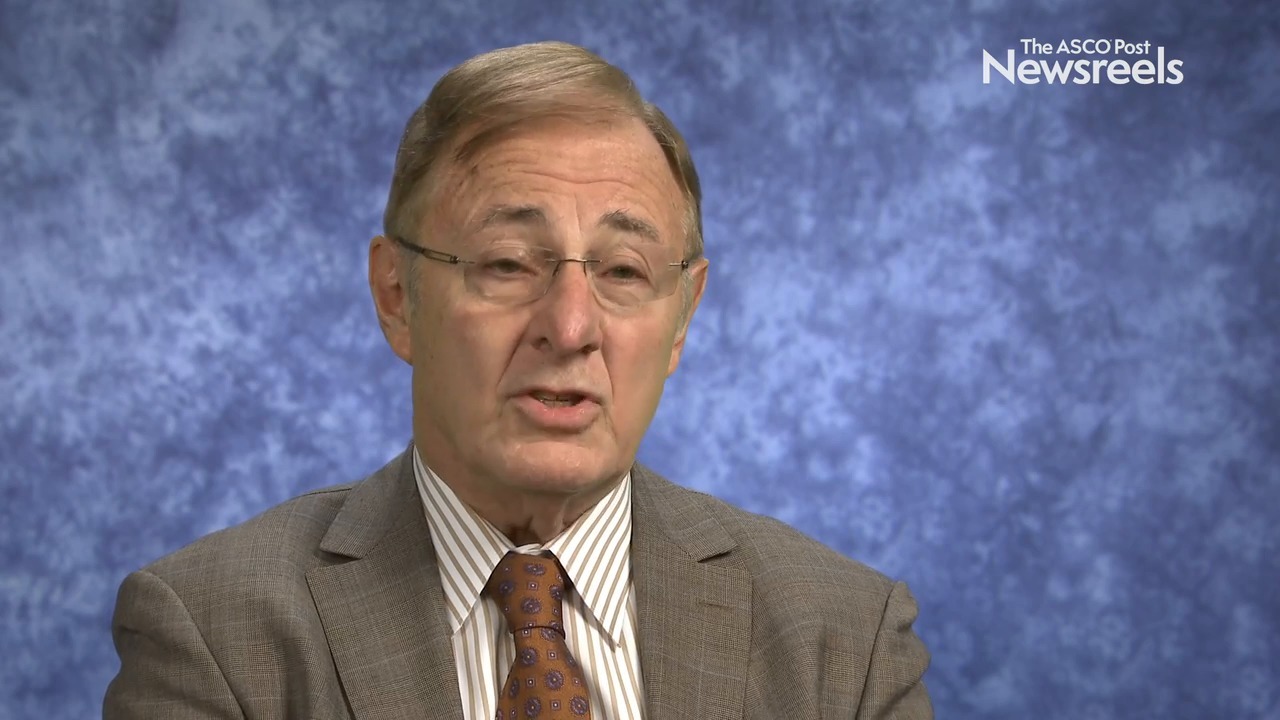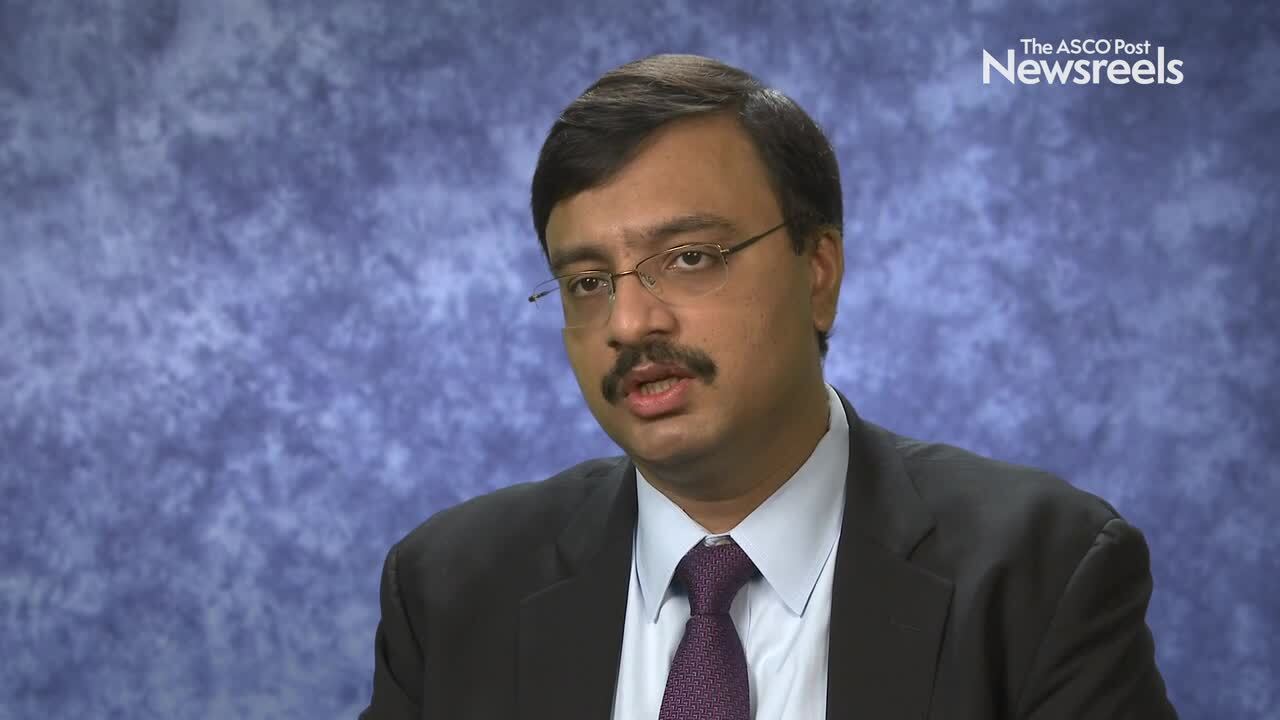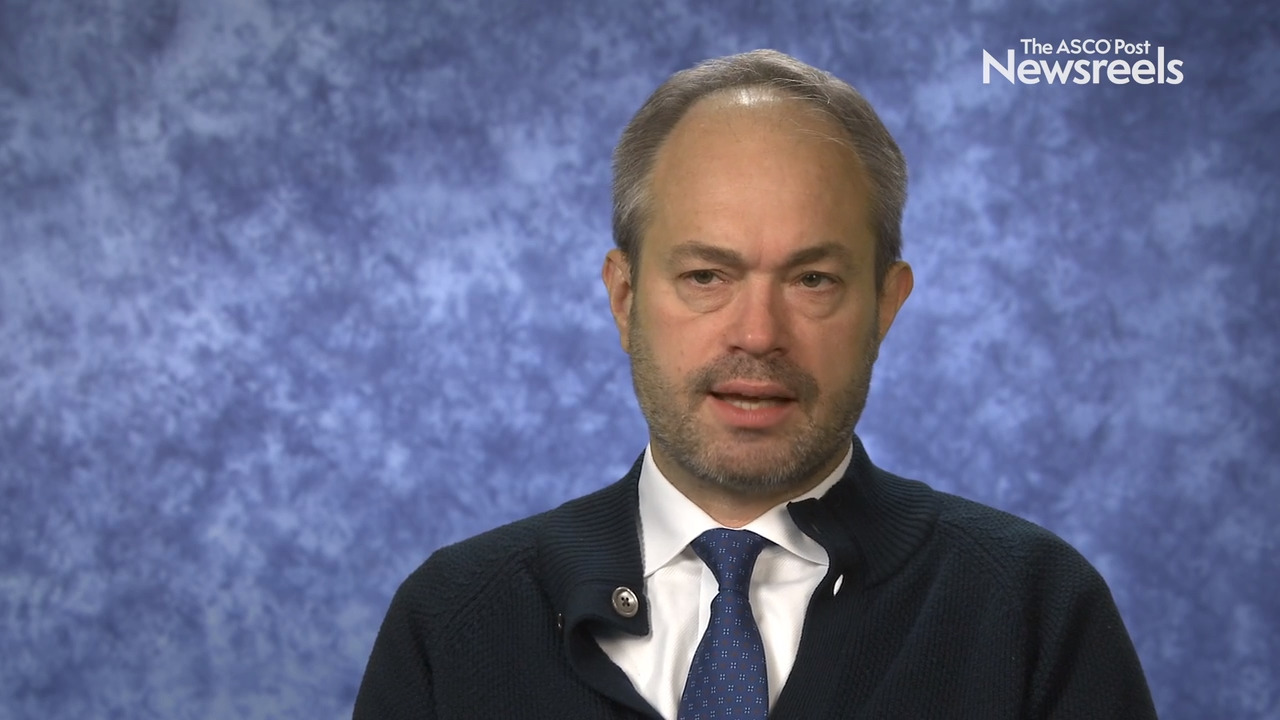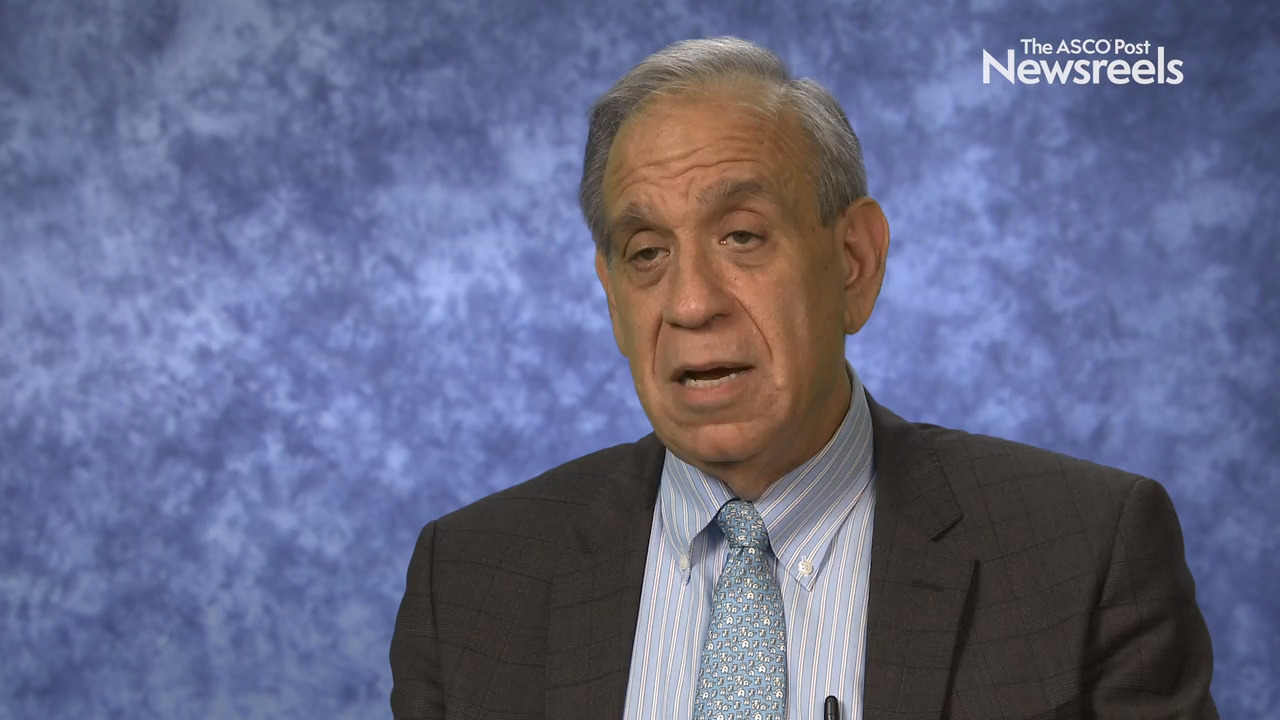NCCN 2019 Annual Congress: Hematologic Malignancies
Personalized Treatment Approaches on the Horizon for Myelodysplastic Syndromes
Despite the spate of recent drug approvals in blood cancer, it’s been more than 13 years since the U.S. Food and Drug Administration (FDA) has approved a treatment for myelodysplastic syndromes (MDS),...
Continuous Therapy for Multiple Myeloma Offers Survival Advantage, but Questions Remain
The number of approved agents in multiple myeloma has skyrocketed in recent years, leading to significant improvements in survival, but questions remain regarding the optimal duration of treatment. Al...
Debating the Role of Chemoimmunotherapy in the First-Line Setting of CLL
The advent of new targeted agents for chronic lymphocytic leukemia (CLL) has ushered in a golden age of treatment, leading to longer, more durable periods of disease control. Not all oncologists are c...
Jorge J. Castillo, MD, on Evolution of Therapy for Relapsed/Refractory Multiple Myeloma
Jorge J. Castillo, MD, of Dana-Farber Cancer Institute, discusses the many advances in treating relapsed and/or refractory multiple myeloma, including novel immunomodulators, proteasome inhibitors, an...
Rafael Bejar, MD, PhD, on Myelodysplastic Syndromes: Advances in Personalized Therapeutic Approaches
Rafael Bejar, MD, PhD, of the University of California, San Diego Moores Cancer Center, discusses the tailored nature of MDS treatment, including somatic mutations that could alter treatment decisions...
Nina Shah, MD: How Long Should Initial Treatment for Myeloma Last?
Nina Shah, MD, of the University of California, San Francisco, discusses the debate on fixed duration vs waiting until disease progression, a key question for clinicians treating patients with multipl...
Richard I. Fisher, MD, on Follicular Lymphoma: Optimizing First-Line Therapy
Richard I. Fisher, MD, of Fox Chase Cancer Center, discusses the improvement in survival for patients with follicular lymphoma, new targeted biologic agents providing alternative treatments, and chemo...
Nitin Jain, MD, on CLL: Is There a Role for Chemoimmunotherapy?
Nitin Jain, MD, of The University of Texas MD Anderson Cancer Center, discusses the debate on evolving strategies in first-line treatment of CLL.
William G. Wierda, MD, PhD, on Evolving Strategies for First-Line Treatment of CLL
William G. Wierda, MD, PhD, of The University of Texas MD Anderson Cancer Center, offers commentary on the debate about evolving strategies in first-line chronic lymphocytic leukemia, the clinical tri...
Andrew D. Zelenetz, MD, PhD, on The Era of Therapeutic Biosimilars: What You Need to Know
Andrew D. Zelenetz, MD, PhD, of Memorial Sloan Kettering Cancer Center, discusses the nature of biologic molecules and their importance in future therapeutic innovation.
